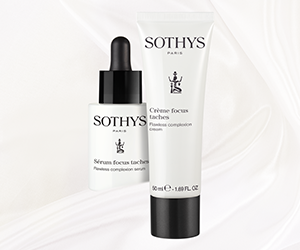 We hear lots about the mind-body connection, but is there any possibility that what we eat could have a direct effect on our mental or emotional health?
We hear lots about the mind-body connection, but is there any possibility that what we eat could have a direct effect on our mental or emotional health?
Unfortunately, there isn’t a one-size-fits-all diet plan that can help control depression. In fact, no research has indicated that a specific eating plan will help you manage the symptoms or effects of depression.
The good news is that while certain foods may not completely eliminate the symptoms of depression, sticking to a healthy and well-balanced diet and keeping to a healthy weight may help in the overall treatment of depression. Here are some tips for making the most out of your healthy diet.
Managing Omega-3 Fatty Acids
Omega-3 fatty acids have plenty of known health benefits, including possibly helping slowing the growth of cancerous tumors. Scientists have also discovered evidence linking a deficit of omega-3 fatty acids and depression. Specifically, research indicated that cultures that consume small amounts of omega-3 fatty acids have a higher incidence of depression. Other research indicates that those consuming little or no seafood, which is rich in omega-3s, are more likely to suffer from depression. To make sure you’re getting enough, eat fish, especially salmon and tuna, as part of a balanced diet. Nuts and dark green leafy vegetables are also good sources of omega-3s.
Carb Up – Calm Down
If you’re suffering from depression, the Atkins Diet may not be the right choice for you. That’s because eating foods that are high in carbohydrates (such as pastas and breads) naturally raises the amount of serotonin in the brain. And as the level of serotonin in the brain rises, anxiety levels drop, making it easier to calm down. So go ahead and indulge with that bagel, but remember it’s still important to make the right choices when it comes to carbs. Whole grains and fresh fruits and vegetables supply carbs as well as fiber and nutrients, without a lot of extra sugar.
Double Up on Vitamin D
Vitamin D has also been shown to increase the levels of serotonin present in the brain, but it is unclear precisely how much vitamin D is the right amount. The strongest research points to vitamin D being particularly helpful in relieving the effects of seasonal affective disorder. Speak to your doctor to determine whether taking a supplement or trying to increase the vitamin D in your diet is right for you.
Seek Out Selenium
Selenium is an element that is essential for good health, and several research studies have suggested a link between selenium deficiencies and depression. Some additional research studies have seemed to indicate that taking selenium may in fact actually decrease feelings of depression. Selenium can be found in nuts, whole grains, beans, seafood and lean meats. Too much selenium can be toxic, however, so talk to your doctor before taking any selenium supplements.
For mental health issues, of course, you should always seek the help of professionals, but it seems that careful modifications to your diet may indeed play some role too.
Written by James Schend, this article originally appeared in www.healthline.com






3 Responses
Great article!
Good advice
I will use this to educate my loved ones.